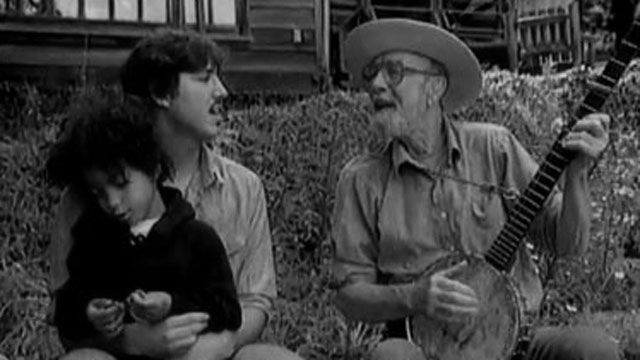Pete Seeger has been called America’s most important living folksinger. He has authored or co-authored many of America’s best known folk songs including Where Have All the Flowers Gone, If I Had a Hammer and Turn, Turn, Turn.
A Harvard University dropout, Seeger met, traveled and performed with the great folksong writer Woody Guthrie in 1940, an experience that inspired him to begin writing his own songs dedicated to “the music of the people.” In 1942, Seeger was drafted into the Army and sent to the Pacific. Following the war, he returned to performing. Blacklisted during the McCarthy era for alleged Communist sympathies, Seeger refused to testify before the House UnAmerican Activities Committee.
During the ’60s, he participated in the Freedom Marches in Selma, Alabama, and Washington, DC, with Dr. Martin Luther King and helped bring an adapted version of the gospel song, We Shall Overcome to the civil rights movement. Seeger was also active in protesting the war in Vietnam.
Already honored with a Grammy Lifetime Achievement Award and a Grammy for his 1996 CD, Pete, his CD At 89, released by Appleseed in September 2008, garnered him a second Grammy. His previous solo CD, part of Seeds: The Songs of Pete Seeger, was also nominated in 2003. Seeger’s latest CD, Live in ’65, is a previously unissued 2-CD set containing a complete Seeger concert recorded in Pittsburgh’s Carnegie Music Hall in February 1965.
In 2007, the documentary Pete Seeger: The Power of Song was released. The film includes appearance by Bob Dylan, Bruce Springsteen, Natalie Maines, Joan Baez and Bonnie Raitt. Seeger’s definitive autobiography, Where Have All the Flowers Gone, was newly updated and reissued in November 2009.

